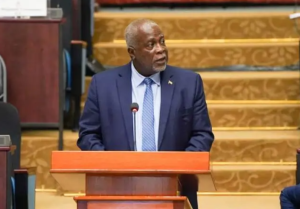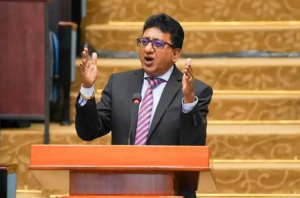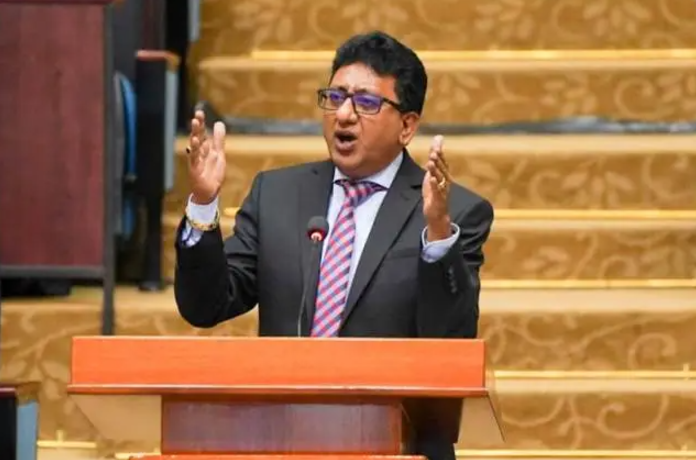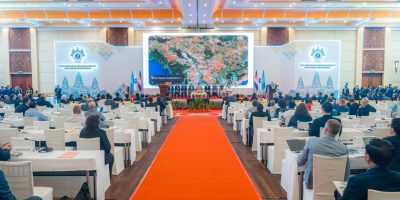…Opposition support bills, but urge widespread sensitisation campaign
Government on Monday passed two bills that set out to improve access to Government data and the estates of deceased persons by their loved ones. Both bills have received bipartisan support from members of the parliamentary Opposition.

The first piece of legislation passed was the Open Data Bill No. 13 of 2024, which aims to enhance access to data held by public authorities, including ministries, public boards, divisions, and commissions.
It requires that public authorities maintain an electronic data registry containing all data assets created, collected, under the control or direction of, or maintained by that public authority.
In his presentation to the National Assembly on Monday, it was explained by Prime Minister Brigadier (retired) Mark Phillips that the Bill would complement the Data Protection Act and the Digital Identity Card Act, which have both been passed last year.

“This bill will attract investment and enable our citizens to participate more fully in the digital economy. The passage of this bill reflects our determination to harness the power of data to drive national development and improve the lives of all Guyanese,” Phillips has said.
“One of the more exciting aspects of this bill is its potential to foster collaboration and innovation. Clause 12 encourages public authorities to engage with citizens, researchers and private sector entities, enabling the co-creation of solutions to societal challenges using public data,” he added.
According to Attorney General Anil Nandlall, the passage of the Bill would be a fulfillment of President Dr Irfaan Ali’s own vision of making Government more accessible to the general public.
“This will help the Ministry of Agriculture to make prudent decisions. It will help our farmers in terms of looking at weather patterns and determining what crops to plant, etc. It will allow our transportation sector to look at passenger trends,” Nandlall said.
Similarly, amendments have been passed to the Deceased Persons Estate Administration Act, allowing the loved ones of deceased persons to have better access to their estates. The bill was robustly supported by the Government side of the house, with PPP/C Member of Parliament Dharamkumar Seeraj giving personal testimony to the importance of the bill, since he had only recently taken on the responsibility of power of attorney for a family member’s deceased spouse.
The bill also received support from Minister of Culture, Youth and Sport, Charles Ramson Jr., who noted the massive impact the bill is likely to have in lifting the financial burden from families in terms of needing to find legal fees in addition to the funeral costs to settle a deceased person’s estate.
“This bill comes from the grassroots of all of our immediate and direct engagements with people. In situations where the death is unexpected, especially when the other person is in a vulnerable situation, they must be able to have access to the means to support themselves in the interim if, for example, they have to get letters of administration or a probate,” Ramson said.
Meanwhile, the Attorney General, in highlighting the significance of the amendment, has said that since, under the current law, a person’s assets become part of their estate when they die, this necessitates a legal process to distribute those assets; and in case a will is left, the executor must apply for probate.
“Our law, prior to 2022, provided that without a letter of administration or probate, one of the authorized persons could have gone to a bank where the deceased had an account and had money in it, but could have only withdrawn $250.
When this act was passed nearly 100 years ago, $250 was a substantial sum of money. This amendment is simply intended to expand the category of places to as wide as possible, moving it from the narrow focus of a bank account to anywhere else,” Nandlall detailed.
Opposition Member of Parliament Annette Ferguson, while agreeing with the bill in principle, urged that a sensitization campaign be done to ensure the content of the bill could be heard and understood by the masses. And while Nandlall noted that persons in far-flung areas are more privy to the news than Ferguson has given them credit for, he acknowledged that more could be done.
Ultimately, both bills were passed by the National Assembly.
A third bill was meanwhile read for the first time, that one being the International Measures for the Protection of Children (Hague Convention) Bill of 2024. This bill was read by the Minister of Human Services and Social Security, Dr Vindhya Persaud.
Read More Interesting Content
















